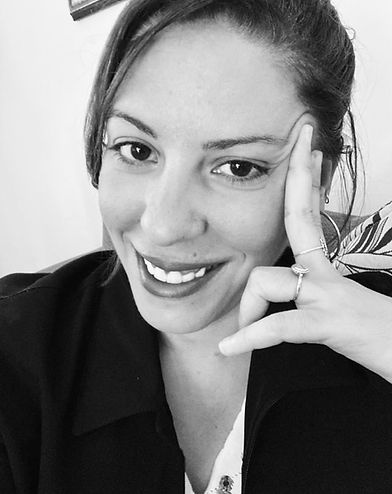MUSIC THERAPY
Music is therapy in itself, what does this mean for us?
Music acts as a mantle of tranquility, it makes us feel good, happy, optimistic, it connects us with the instinctive part of our creative self. It relaxes us, it contributes to our well being, and it is a form of communication and expression.
But what if we don't always have all the abilities to communicate with the world around us in traditional ways?
Music can help us to develop tools that for some reason or condition we do not have at hand at the moment.
Music therapy is a psychodynamic therapy approach, suitable for all ages.
The music therapist employs music and other arts interventions to address diverse needs, spanning physical, emotional, cognitive, and social realms. Trained therapists utilize techniques such as listening, singing, and playing instruments to foster positive changes.
Children, including those with ADHD, social skill deficits, anxiety, speech and language difficulties, autism, challenges with authority and boundaries, and of course any other emotional, motoric and neurological difficulties can benefit from tailored music therapy sessions.
These interventions aim to enhance communication, improve motor skills, reduce stress, promote emotional expression, and facilitate social connections, contributing to holistic approaches to wellness. Sessions can be carried out as individual, group session or parent-child sessions, depending on the targets and needs of each patient.
If you are interested in having more information about music therapy sessions.
please fill in this form.
Sessions can be individual, group or parent-child session.
Sessions are in English.
How exactly music therapy can help in each case?
1. **Children with Autism Spectrum Disorders (ASD)**: Music therapy helps improve social interaction, communication, and behavioral skills, providing a non-verbal medium for expression and interaction.
2. **Children with Speech and Language Delays**: Music's rhythmic and repetitive aspects can enhance speech development and fluency, assisting in the improvement of articulation, vocabulary, and overall language skills.
3. **Children with Emotional and Behavioral Disorders**: Those experiencing anxiety, depression, or behavioral issues can use music therapy to express feelings safely, develop coping skills, and improve self-regulation.
4. **Children with Learning Disabilities**: Music therapy can help improve focus, memory, and learning strategies through musical games and activities that enhance auditory and cognitive skills.
5. **Children with Physical Disabilities**: Engaging in music-making can improve motor skills, coordination, and physical mobility. It can also provide a sense of accomplishment and increase self-esteem.
6. **Children with Neurological Disorders**: For children dealing with conditions like cerebral palsy, epilepsy, or traumatic brain injuries, music therapy can stimulate cognitive functioning and physical coordination.
7. **Children with Sensory Impairments**: Including those who are hearing impaired or visually impaired, music therapy can enhance sensory integration and provide alternative sensory stimulation.
8. **Children with Chronic Illnesses**: Music therapy offers a creative and emotional outlet for children dealing with long-term medical conditions, helping them cope with pain, stress, and the anxiety of hospital environments.
9. **Gifted Children**: Gifted children can also benefit from music therapy as it provides an outlet for creative and emotional expression, helping them balance intellectual and emotional development.
10. **Children Experiencing Trauma**: Music therapy provides a safe space for children who have undergone traumatic experiences to explore their emotions and begin the healing process. The inclusivity of music therapy means that almost any child can benefit, regardless of their condition or abilities. The key is tailoring the therapy to meet the individual needs of each child, helping them reach their full potential through the therapeutic power of music.

Hala Hamdan
Music teacher and therapist, Hala provides brief therapeutic interventions and psychotherapy on a short or long-term basis. With her 12 years of experience in the field, she specialises in the treatment of a range of clinical problems: including depression, anxiety, trauma, autism, ADHD, ADD, cancer and other medical issues in a Hostpital, improving motoric and speech skills, social issues, relocation challenges, anger regulation and more.
Hala has a MA degree in Music therapy, and also a certification obtained at Adler's institute, for parents' guiding and supporting. Hala runs presentations for parents and professional teams about music therapy (music therapy and autism, music therapy and trauma etc), and also presentations for parents who seek for guidance and support. She also teaches art therapy students different psychology courses ( Metafora Art Therapy School in barcelona).
Hala has worked in diverse frames through her carrier, including: Schools, special education frameworks, kindergartens, hospitals where she treated children with cancer and other medical issues, public clinic, and a private clinic.
Hala believes that a significant connection built with her patients is essential for a significant therapeutic process. Hala also believes in the power of music and arts in creating positive changes in our life, and is full of passion taking a part of these changes together with her patients.
Sessions are in English.

